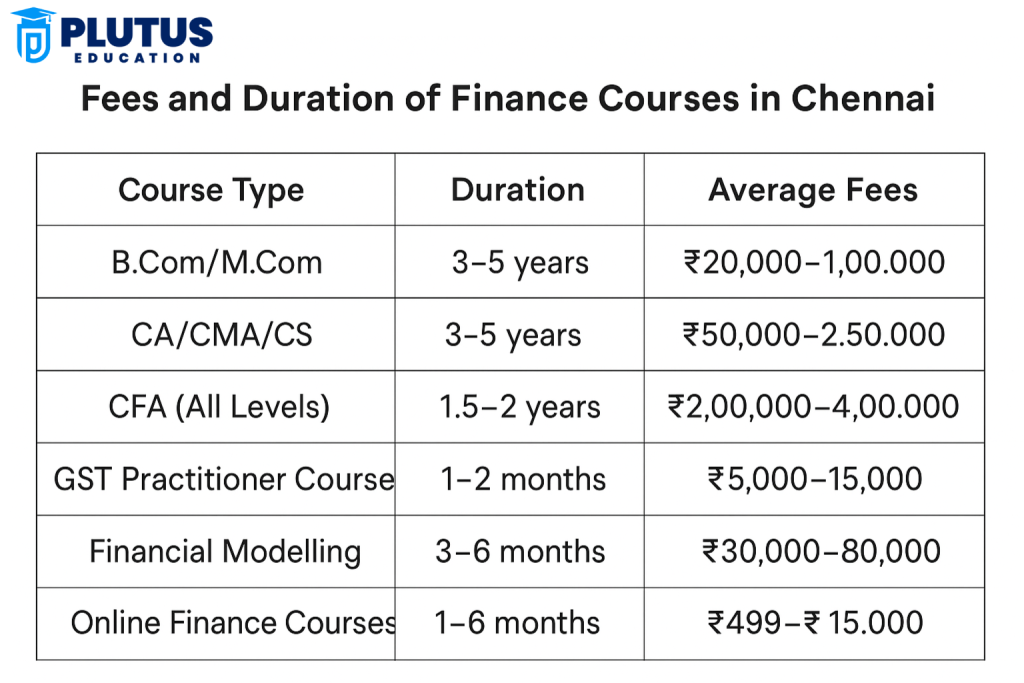Today, many industries want professionals who understand both law and finance. That’s why law and finance courses have become very popular. These courses teach students how legal rules affect money decisions and how finance drives business actions. If you want to work in top jobs like corporate law, financial regulation, or mergers and acquisitions, these courses are perfect for you. Law and finance courses combine legal studies with finance training. You study topics like business law, securities regulation, corporate finance, and taxation. You also learn how to think like a lawyer and act like a finance expert. These skills help you work in banks, law firms, companies, and even government bodies. Many students choose these courses because they offer job stability, high salaries, and the chance to work in many industries. You don’t need to become a full lawyer or full finance analyst. This combined program gives you both skills in one place. You become more valuable in the job market.
Types of Law and Finance Courses in India
Law and finance programs come in many formats. Some focus more on legal studies, while others offer advanced finance topics. You should choose based on your career goals.
Undergraduate Programs
Many universities offer bachelor’s degrees that include both law and finance. These programs help students start early. You learn the basics of law, economics, and financial systems.
- Duration: 3 to 5 years depending on the country
- Topics: Introduction to legal systems, financial accounting, business ethics, and financial regulations
- Career Path: Entry-level jobs in legal research, finance assistance, compliance roles
You can also go for a double major in law and finance. Some universities let students earn credits in both subjects.
Postgraduate Programs
Postgraduate degrees are the most common format for law and finance courses. These include LLM in Law and Finance, MBA in Law and Finance, or Master’s in Financial Law.
- Duration: 1 to 2 years
- Topics: Securities law, mergers & acquisitions, international finance, corporate law, investment law
- Career Path: Legal advisor, financial analyst, corporate consultant, compliance manager
Many working professionals also choose a PG diploma in financial law or certificate programs. These allow part-time study with a flexible schedule.

What You Learn in Law and Finance Courses?
These courses mix legal theory with finance practice. You learn how laws impact money, and how financial actions need legal safety.
- Corporate Finance: Learn how companies raise and use money.
- Business Law: Understand contracts, company laws, and regulations.
- Taxation: Study income tax, GST, and international tax rules.
- Securities Regulation: Learn laws about shares, bonds, and market rules.
- Compliance and Risk Management: Learn how to protect companies from legal and financial risks.
- Investment Law: Understand how rules apply to mutual funds, stocks, and real estate investments.
- Banking Law: Study legal rules for banking and financial services.
These subjects prepare you to handle both finance and legal challenges in real jobs. You also learn how to read contracts, write reports, and follow compliance rules.
Top Universities and Institutes Offering Law and Finance Courses
Many top institutions offer these programs. You should choose based on your career goal, budget, and study location preference.
| University / Institute | Course Offered | Location |
| University of Oxford | MSc in Law and Finance | United Kingdom |
| National Law University, Delhi | PG Diploma in Business Law and Finance | India |
| University of Pennsylvania | LLM with Finance Concentration | USA |
| London School of Economics (LSE) | MSc in Law and Accounting | United Kingdom |
| Symbiosis Law School | MBA in Law and Finance | India |
| New York University (NYU) | LLM in Corporation Law | USA |
Some universities also offer joint programs like JD-MBA or LLB with finance as a specialization. These are good for students who want dual expertise.
Career Opportunities After Law and Finance Courses
These courses open many career options. Companies want people who understand laws and can manage financial actions. You can work in many industries like banking, insurance, IT, pharma, and law firms.
- Corporate Lawyer: You handle company laws, mergers, contracts, and investments.
- Compliance Officer: You make sure companies follow all laws and financial rules.
- Legal Risk Manager: You identify risks and protect the company from legal or money losses.
- Financial Consultant: You guide clients or businesses in money decisions.
- Regulatory Analyst: You work with government rules and support business growth.
- Banking Legal Advisor: You manage banking contracts, fraud checks, and loan documentation.
| Role | Starting Salary (INR/year) | With Experience (INR/year) |
| Legal Analyst | 5–8 LPA | 12–20 LPA |
| Compliance Manager | 8–12 LPA | 15–25 LPA |
| Corporate Lawyer | 10–15 LPA | 20–40 LPA |
| Finance Legal Consultant | 7–10 LPA | 18–30 LPA |
Salaries are higher if you work in MNCs or international law firms. Professionals with both finance and law knowledge get faster promotions.
Who Can Apply for Law and Finance Courses?
These courses are open to students from different backgrounds. You don’t need to have law or finance as a subject before. But basic interest in business, economics, or law helps.
| Course Level | Educational Background | Other Requirements |
| UG Programs | 12th pass with commerce, arts or science stream | Good English skills, entrance exams |
| PG Programs | Graduate in law, commerce, finance, or business | Work experience (for some programs) |
| Certificate | Any graduate or working professional | Basic interest in law or finance |
Some courses need you to pass exams like CLAT PG, LSAT, or GMAT. Others take direct admission.
Advantages of Studying Law and Finance Together
Combining law and finance brings many long-term benefits. You get a unique skill set that most people don’t have. This helps you get better jobs and job security.
- More Career Choices: You can work in law firms, banks, consulting, or startups.
- Higher Salaries: Dual-skilled professionals earn more.
- Leadership Roles: You understand business and law, so you can take decisions.
- Work Internationally: These courses help in global finance and legal roles.
- Better Problem Solving: You know how to look at issues from both legal and money angles.
Many companies now want one person who knows both finance and law. This saves cost and improves decisions.
Financial Law Courses in India
Financial Law courses in India are becoming increasingly important due to the growth of the financial sector and the demand for professionals who understand both finance and law. These courses prepare students to deal with legal aspects of finance such as banking regulation, mergers and acquisitions, securities law, taxation, insolvency, and compliance. Students from commerce, finance, law, or accounting backgrounds often pursue these programs to gain a competitive edge in careers like corporate law, compliance, investment banking, or consultancy.
Types of Financial Law Courses in India
There are different types of financial law courses available in India that cater to students, professionals, and working executives:
- Diploma Courses: Short-term programs offered by institutes like NALSAR, Symbiosis, and National Law University, focusing on corporate law, banking law, or securities law.
- LL.M in Financial Law: Offered by prestigious law schools such as National Law University (NLU Delhi), Jindal Global Law School, and NALSAR. This program provides in-depth knowledge of global and Indian financial laws.
- Certification Courses: Online and offline short certifications offered by institutions like ICSI, ICAI, and NSE Academy on topics such as corporate governance, financial regulation, or securities market law.
- Integrated Law Programs with Finance Specialization: Some integrated BBA LL.B or B.Com LL.B programs include electives in financial law or corporate governance.
Top Institutes Offering Financial Law Courses
Following table provides a bird eye view to the best institutes in India offering courses in financial law:
| Institute Name | Course Offered | Duration |
| National Law University, Delhi | LL.M in Business Laws | 1 Year |
| NALSAR University, Hyderabad | PG Diploma in Financial Services Law | 1 Year |
| Symbiosis Law School, Pune | Certificate in Banking and Insurance Law | 6 Months |
| Jindal Global Law School, Sonipat | LL.M in Corporate and Financial Law | 1 Year |
| ICAI (Institute of Chartered Accountants of India) | Certificate Course on Valuation & Law | Varies |
Law and Finance Courses FAQs
1. What are law and finance courses?
These are programs that teach legal and financial topics together. They prepare students for jobs in legal finance, corporate law, and regulatory roles.
2. Can I do law and finance courses after 12th?
Yes. Some universities offer bachelor’s degrees with a mix of law and finance.
3. Do I need to be a law graduate to study law and finance?
No. Many PG diploma and certificate courses accept graduates from any stream.
4. What is the duration of law and finance courses?
Bachelor’s: 3–5 years; Master’s: 1–2 years; Certificate: Few weeks to 6 months.
5. Are there online law and finance courses available?
Yes. Platforms like Coursera, Udemy, and university portals offer online courses.


